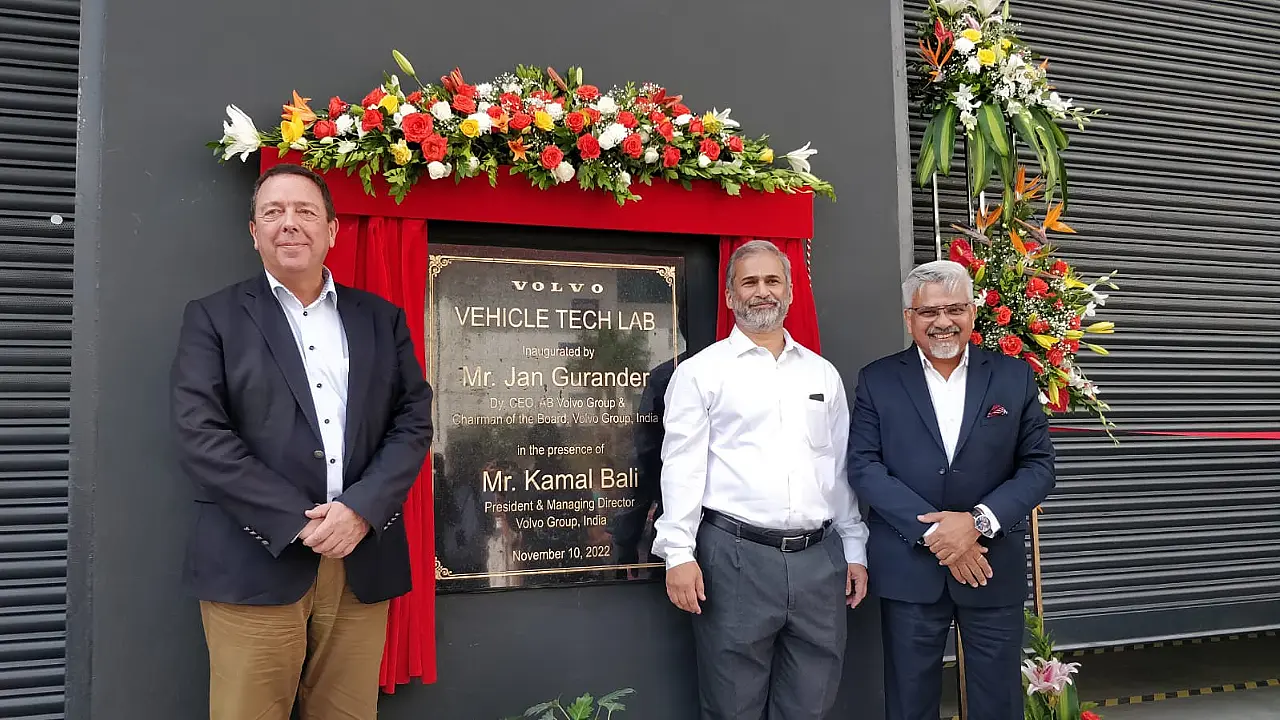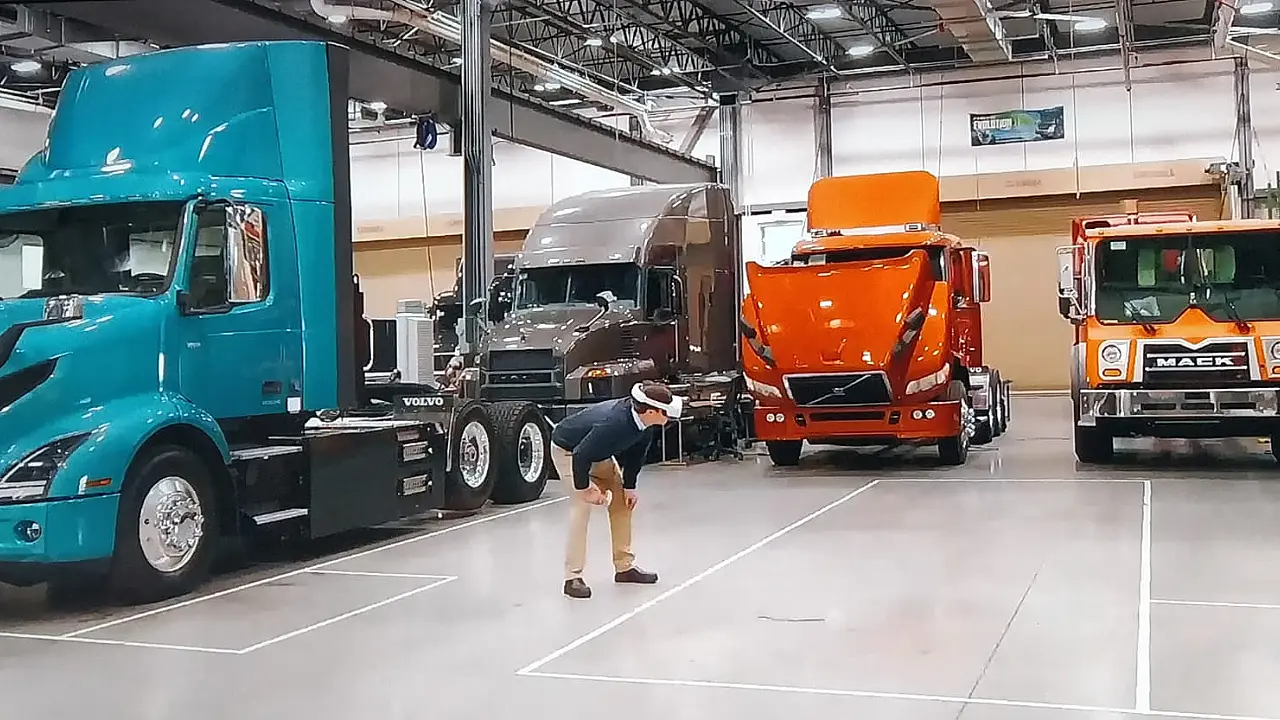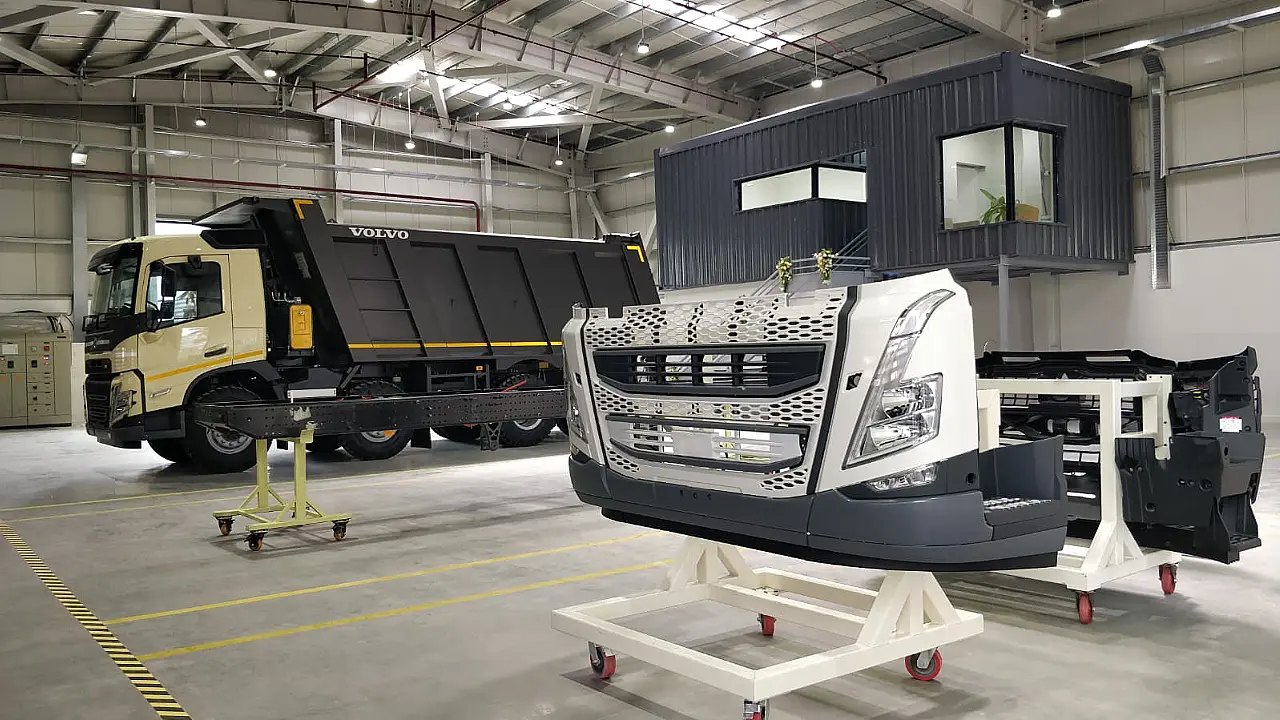
Volvo India inaugurated its vehicle test lab at its R&D centre for trucks, GTT (Group Trucks Technology) campus, in Bengaluru on Thursday.
The new entity will be a playground for the 1,300 engineers working at GTT. This is because they will not have to spend time and effort travelling to different locations while developing technologies and vehicles for different markets.
The test lab is designed as a collaborative virtual workspace while creating a simulated workshop environment using technologies like virtual reality, human body motion tracking & realistic digital rendering of vehicles. This will help engineers across the globe to connect and collaborate virtually.
In addition to substantially containing the time to market, the test lab can carry out several technological developments going beyond the vehicle to developing components and subsystems and catering to the service part of the commercial vehicle ecosystem. This has been made possible thanks to the lab being connected to 33 other labs of the Volvo Group worldwide and performing firmware testing, software updates etc. Kamal Bali, President and MD, Volvo Group India, said this initiative will pave the way for a sustainable journey for the Group.
Lab Configuration
The lab also has XR Space, 3D Printing, EMOB, Live Truck and Test Space. The XR space comprises two virtual reality tools that help in joint reviews by two engineers irrespective of the location. This writer saw an electric truck stationed at one of the group’s plants in Sweden but still felt being physically present while interacting with the co-developer standing beside him. XR Space helps engineers design and develop vehicles for assembly and service. It also performs functional simulation and work on a modular approach which reduces the development time of future vehicles.

Need For Such A Facility
The Volvo Group has planned a host of initiatives including battery electric, hydrogen fuel, and sustainable biofuels. By 2030, it has targeted reducing CO2 emissions of its trucks & buses by 40% per vehicle km. The Group has been working on a global business transformation to adopt emerging technologies and new business models across automation, electromobility and connectivity.
During a recent interaction with this correspondent, Jan Gurander, Deputy CEO, Volvo Group, said it sells 1,000 to 2,000 electric vehicles per year and enhancing the component from barely 1% to 35% of totall volumes has been a significant journey. Volvo has already started work along the whole value chain from R&D to production. It is also readying its facilities to assemble both diesel and battery electric vehicles in the same production line.
With the emerging transformation, Volvo faces challenges in managing a different set of suppliers, their inbound/outbound inventory and so on. There will be new vendors for batteries, electric motors and other systems. Right from making gearboxes and cylinder blocks to cabs, it also needs to focus on electric vehicles and is, therefore, reevaluating its entire operations.
Volvo is also working on development of fuel cells and began testing fuel cell trucks in June. These might debut in the second half of this decade and will have an operational range of up to 1,000 km comparable to many diesel trucks. Refuelling time will be less than 15 minutes.

It is in this backdrop of change within the entire ecosystem of vehicle development that the Vehicle Test Lab of GTT will play a big role in supporting the Group. Vishwanath C R, Vice President, Vehicle Engineering and Site Manager, Volvo Group India, said the lab would help engineers develop vehicles and subsystems better, faster and at a competitive cost.
It will also help simulate in a virtual environment, predict failures and address them. Moreover, 3D printing contributes to making the prototype, installing it in the vehicle and carrying out design modifications. Besides, it helps in testing different functionalities and delivering better quality.
Also Read
Daimler, Traton, Volvo Partner For European Charging Infrastructure
Volvo Group Initiates Cell Production Plant In Sweden
Brakes India Creates Benchmark In Supplying Green Castings For Volvo